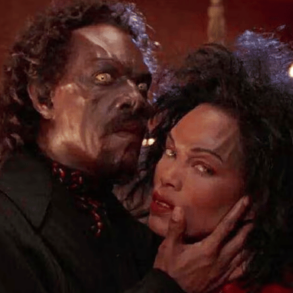
I came across an article in the Campus Times’ most recent print edition on Oct. 25, and I haven’t stopped thinking about it since. I found myself repelled by the first-wave feminism and toxic positivity that oozed from Columnist Nadia Pentolino’s poorly generalized take on womanhood, and I wanted to address it.
As someone who is genderqueer but grew up as a woman, my perspective on this article is certainly biased. I’ve thought about gender more than the average individual, and was raised in an environment that not only allowed for discussions on gender and sexuality, but encouraged self-exploration and questioning. That is all to say, my opinion may not be the same as yours — nor should it be — so I welcome you to form your own as you follow along through some choice excerpts of Pentolino’s “I love being a woman” with me.
“I love being able to get dolled up when I feel like it. I love wearing makeup, skirts, heels, or anything that makes me feel feminine.”
Getting “dolled up” isn’t innately feminine. Can’t men get dolled up? Can’t anyone? I understand that it’s empowering that we’ve taken it back from the patriarchy, but this doesn’t belong solely to women.
Why must we associate womanhood with makeup, skirts, or heels? This notion plays into the stereotypes already forced on us. There’s no nuance here. This article confuses tools used to feel feminine with what makes a woman.
Pentolino associates womanhood throughout this piece with accolades and labels that juxtapose women against men: “feminine” colors (pinks, purples, and pastels), the ability to menstruate and give birth, and the sense of community and support she finds as a result of her womanhood, to name a few.
But I would argue that color doesn’t have a gender. This is a narrative that the feminist movement is trying to push away from. These colors aren’t inherently feminine, we’ve just been told they are.
“I love being a woman” is a complete contrast from Pentolino’s other work, where she writes, “Women have fought so hard to be seen as more than birthing machines.” In “I love being a woman” however, she falls back on stereotypes.
Besides any strength that might come from experiencing physical pain such as giving birth or menstruation, women are valuable. Full stop. This also glosses completely over the perspectives of transgender women, of whom may not have these exact experiences.
“Women are stunning. We come in all shapes, sizes, and races. And no matter what, we are always beautiful. We don’t have to listen to the stereotypes society has laid out for us, because we’re gorgeous just the way we are.”
Women’s bodies are too often viewed as the only valuable thing about them — either sexualized, beautified, or as human incubators. Beauty is neither imperative nor exclusive to womanhood, and it is neither a requirement for existence nor indicative of worth.
While Pentolino’s words can be comforting for boosting self-esteem, equating womanhood to beauty, even in supposedly inclusive ways, is harmful and perpetuates stereotypes. It’s totally chill to enjoy being beautiful, but it’s not cool to apply it to all women as an intrinsic part of womanhood.
“I love our mannerisms — our ‘girl dinners,’ how we ‘slay,’ and when we ‘mother.’ I love the nicknames that we give each other, like ‘girl boss’ and “queen.’ ”
This line enrages me. “Girl dinner” is a problematic term that has drawn criticism for making light of eating disorders. I would refrain from supporting the fad since it seems to be yet another manifestation of the way diet culture creeps into women’s lives.
The term “slay” has been appropriated from AAVE. It originated from Black and Latino LGBTQ+ ballroom culture in the 1970s and ’80s, and only recently moved into mainstream use through its use in “Paris is Burning,” RuPaul’s Drag Race, and Beyonce’s “Formation.” Slaying isn’t an inherently “woman” thing.
For me, the mention of “mother” lacks context. Which definition is being used here? I think that Pentolino is referring to the slang term, as in “mother is Madonna,” and again, this is not our culture. According to The NYT, “it derives from the Black and Latino LGBTQ. ballroom scene, a queer subculture in which members are organized into so-called houses often led by a ‘mother.’”
“Queen” derives from drag queens and “girlboss,” while something Pentolino may perceive as positive, has been used as a way to put women down. It’s a patriarchal conceit. Women don’t need a special category of achievement, and the phrase is a symbol of toxicity.
Pentolino’s surface-level take on sisterhood, as noted in the quote below, also presumes that the female experience is universal.
“And I especially enjoy the sense of sisterhood that we all share… The world may be against us, but as long as we have each other, we will always come out victorious. Because women are strong, beautiful, and amazing human beings.”
The “all” in “sense of sisterhood we all share” exasperates me. If Pentolino is talking about her lived experiences, then I am genuinely so happy that she has found a community she loves and trusts and fits in with. However, the more I read, the more I feel that this is just one person’s experience being polished and applied to women as a whole.
These generalizations of the female perspective continue as Pentolino approaches the fight for abortion rights, equal pay, and other concerns.
Although women have historically come together to fight for our rights, we haven’t always been united. It took hundreds of years for the suffrage movement to bear fruit. However much progress has been made, women still aren’t treated the same throughout society.
Also, women don’t (and didn’t) always unite behind the same causes simply by virtue of being a woman. There is infighting. The continued devaluation of black and brown women, for example. The epidemic of missing and unreported indigenous women for another. Trans and gay women aren’t supported by all women. Even unconventionally attractive and overweight women aren’t treated the same as other women. Even if she is writing from a lived experience of only receiving support from other women, it’s important to acknowledge that there are still groups of women everywhere with conflicting opinions. In the repeal of Roe v. Wade, female legislators voted to take away our right to an abortion. Women’s initiatives get backtracked and roadblocked by women, too.
I would also argue that women don’t always receive support from other women. There are women who have it out for you. While Pentolino may enjoy a sense of camaraderie from other women, I think that she is mistaking a few assumed shared experiences with close woman friends for a universal alliance that extends to all women. Female connection and bonding is lovely, but it is not absolute across the entire demographic.
Women are people, and sometimes people are scared of being vulnerable. Women can’t always understand each other’s struggles just by virtue of being a woman; different women have entirely different experiences. That’s the whole point of intersectional feminism.
I take issue in how Pentolino equates female empowerment with success over men, as denoted in:
“Women are smart — we are more likely to attend college and graduate with a four year degree than men. This is despite numerous historic educational barriers. We are now doing something that would’ve been unheard of so many years ago. But then again, women are always breaking boundaries.”
For gender equality to be successful, women must see our accomplishments for what they are and not how they measure up to what others are doing. We have to value the differences we bring to the table, and support the steps being taken to increase women’s participation in education and historically male-dominated fields. I’d encourage a feminist attitude that promotes equality between the genders without using one as an example to either meet or surpass. We are stronger together than divided over how many X-chromosomes we have.
This article paints a grandiose and empowering picture of two-dimensional women, those who advocate for themselves in a perfectly passive, palatable way. To me, it reads like a man wrote it as propaganda to get women to stop asking to be doctors. This article, meant to portray a love for womanhood, totally missed the mark — we can be cunning. We can be clever. We can be cutthroat — characteristics all necessary for the progress that we have made. I love that about us.
I wish that Pentolino had given more weight to our adaptability: our ease and flexibility, our compassion and our thoughtfulness that come from years of being socialized as a woman. Society has forced us to time and time again prove ourselves as equals: just as smart, strong, and capable as anyone else. Women deal with special pressure to carry the mental and emotional burdens of their loved ones. I think that talking about the trauma associated with womanhood is just as important as talking about our successes, if not more so.
I am so happy that Pentolino loves being a woman, I truly am, but this article made me hate being socialized as a woman. It brought up so many things that I hate have been associated with womanhood, and I want people to see that we are more than just pretty clothes and makeup. We’re more than an emotional support pillar for everyone else in our lives. We are not just a resource for everyone else, and we are not the entertainment. We have thoughts, lives, dreams — hell, we’re at college. We have careers to make happen. I want to feel empowered as a woman through the way I see the world and how I can use that. I want to love women not because of how supportive other women are, but by our capacity to have and show emotion.
I know that this is an op-ed with a focus on uniting and uplifting for women across campus, but I find myself angered, excluded, and frankly, tired.
This post was originally published on this site be sure to check out more of their content.








